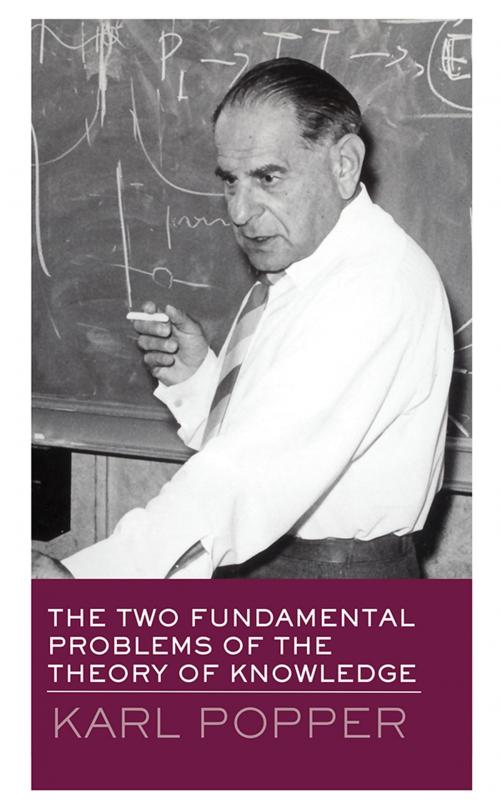The Two Fundamental Problems of the Theory of Knowledge
Nonfiction, Religion & Spirituality, Philosophy| Author: | Karl Popper | ISBN: | 9781135626839 |
| Publisher: | Taylor and Francis | Publication: | May 1, 2014 |
| Imprint: | Routledge | Language: | English |
| Author: | Karl Popper |
| ISBN: | 9781135626839 |
| Publisher: | Taylor and Francis |
| Publication: | May 1, 2014 |
| Imprint: | Routledge |
| Language: | English |
In a letter of 1932, Karl Popper described Die beiden Grundprobleme der Erkenntnistheorie – The Two Fundamental Problems of the Theory of Knowledge – as ‘…a child of crises, above all of …the crisis of physics.’
Finally available in English, it is a major contribution to the philosophy of science, epistemology and twentieth century philosophy generally.
The two fundamental problems of knowledge that lie at the centre of the book are the problem of induction, that although we are able to observe only a limited number of particular events, science nevertheless advances unrestricted universal statements; and the problem of demarcation, which asks for a separating line between empirical science and non-science.
Popper seeks to solve these two basic problems with his celebrated theory of falsifiability, arguing that the inferences made in science are not inductive but deductive; science does not start with observations and proceed to generalise them but with problems, which it attacks with bold conjectures.
The Two Fundamental Problems of the Theory of Knowledge is essential reading for anyone interested in Karl Popper, in the history and philosophy of science, and in the methods and theories of science itself.
In a letter of 1932, Karl Popper described Die beiden Grundprobleme der Erkenntnistheorie – The Two Fundamental Problems of the Theory of Knowledge – as ‘…a child of crises, above all of …the crisis of physics.’
Finally available in English, it is a major contribution to the philosophy of science, epistemology and twentieth century philosophy generally.
The two fundamental problems of knowledge that lie at the centre of the book are the problem of induction, that although we are able to observe only a limited number of particular events, science nevertheless advances unrestricted universal statements; and the problem of demarcation, which asks for a separating line between empirical science and non-science.
Popper seeks to solve these two basic problems with his celebrated theory of falsifiability, arguing that the inferences made in science are not inductive but deductive; science does not start with observations and proceed to generalise them but with problems, which it attacks with bold conjectures.
The Two Fundamental Problems of the Theory of Knowledge is essential reading for anyone interested in Karl Popper, in the history and philosophy of science, and in the methods and theories of science itself.















